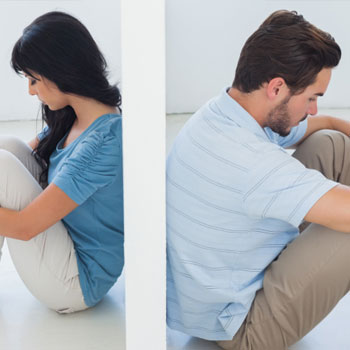Depression in Relationships

Those who get married traditionally take the vow to care for one another “in sickness and health.” It’s difficult enough to do that when your partner battles physical illness, but mental illness is a whole ‘nother story. For those whose relationships are affected by clinical depression, it can be a struggle to stay together and keep the unaffected partner healthy, too. Depression is characterized not only by feelings of sadness, lethargy and despair, but also anger, withdrawal and disinterest. The latter qualities can take a toll on a relationship, making the caretaking spouse feel unloved and unappreciated. It’s important to understand that people with depression are not themselves. Recovery isn’t fast. Depression is recurrent, and the affected partner can’t just will the effects away. It’s important to keep in mind that depression is an illness, and it can make both parties lose the will to work things out in the relationship. The person suffering from depression can lose interest in pretty much everything that makes a relationship successful – sex, shared activities, friends, family and more.It’s difficult for those suffering from depression to control their emotions. Men who suffer from depression are likely to lash out in anger and irritability, while women tend to lapse into sadness and despair. And the things a partner with depression might do or say are not indicative of his or her true character. But despite what a depressed partner might indicate, he or she needs the support of loved ones more than ever. Don’t stop encouraging a depressed partner to get professional help. And at home, do your best to encourage a depressed partner to eat healthy, exercise and get out of the house to socialize whenever possible. Couples’ therapy can help to mend any rifts in the relationship.
